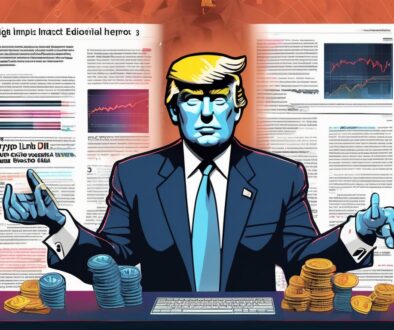Pakistan’s Crypto Pivot Gains Support from Michael Saylor

Pakistan, a nation steadily navigating its path towards a digital economy, has recently garnered significant attention from a prominent figure in the cryptocurrency world: Michael Saylor. The executive chairman of Strategy, a company renowned for holding the largest Bitcoin reserves among publicly traded firms, has not only commended Pakistan’s progressive strides in digital asset adoption but has also offered his invaluable expertise to guide the country’s burgeoning crypto initiatives.
This pivotal development marks a significant milestone in Pakistan’s journey to embrace blockchain technology and digital currencies. Saylor’s engagement with Pakistan’s Ministry of Finance underscores a global recognition of the nation’s evolving crypto policies and its ambitious plans, including the establishment of a national Bitcoin reserve. It signals a potential paradigm shift for Pakistan, positioning it as a proactive player in the global digital assets landscape.
Pakistan’s Evolving Stance on Cryptocurrency
For a country that once viewed cryptocurrency with skepticism, even imposing outright bans on its use, Pakistan has undergone a remarkable transformation. The initial restrictive stance, reinforced by bodies like the National Assembly’s Standing Committee on Finance, has gradually given way to a more pragmatic and forward-looking approach.
Recognizing the immense potential of digital assets and the underlying blockchain technology, Pakistan has embarked on a strategic pivot. Key to this evolution has been the establishment of dedicated regulatory frameworks and bodies:
- Pakistan Digital Assets Authority (PDAA): This newly formed authority is poised to play a crucial role in regulating Pakistan’s substantial informal crypto market, estimated to be well over $25 billion. Beyond regulation, the PDAA is also expected to facilitate the tokenization of national assets and government debt, unlocking new avenues for economic growth and financing.
- Pakistan Crypto Council (PCC): Working in tandem with the PDAA, the PCC serves as another vital regulatory body, tasked with overseeing the broader digital asset ecosystem within the country. Its establishment signifies a concerted effort to create a secure, transparent, and legally sound environment for crypto operations.
This shift from prohibition to regulation highlights Pakistan’s commitment to integrating digital assets into its financial landscape, aiming to foster innovation and attract investment.
Michael Saylor’s Vision and Advisory Role
At the heart of this collaborative effort is Michael Saylor, a name synonymous with institutional Bitcoin adoption. As the executive chairman of Strategy, Saylor pioneered the “Bitcoin treasury model,” beginning in 2020. Under his guidance, Strategy has strategically accumulated a significant amount of Bitcoin, cementing its position as a leading proponent of Bitcoin as a primary treasury reserve asset.
Saylor’s philosophy revolves around Bitcoin’s potential as a superior store of value and a hedge against inflation, making it an attractive asset for both corporate and national balance sheets. His engagement with Pakistan’s finance and crypto ministers was not merely a courtesy call; it was an offer to share his profound expertise.
Saylor has explicitly offered to advise Pakistan on its national Bitcoin reserve strategy, a move that could significantly accelerate the country’s digital asset ambitions. His endorsement provides a powerful validation of Pakistan’s direction, emphasizing the transformative potential of integrating Bitcoin into a nation’s financial framework. Saylor’s willingness to guide Pakistan underscores his belief in the broader applicability of his Bitcoin strategy, extending it from corporate treasuries to sovereign reserves.
A Synergistic Partnership for Digital Leadership
The convergence of Pakistan’s proactive crypto policy and Michael Saylor’s seasoned expertise creates a powerful synergy. Saylor’s emphasis on the critical role of “leadership and trust” in attracting capital resonates deeply with Pakistan’s aspirations to become a leader in digital asset adoption. By demonstrating a clear, well-regulated path forward, Pakistan aims to build the confidence necessary to draw significant foreign investment and foster a thriving local crypto industry.
The meeting between Saylor and Pakistan’s Ministry of Finance has been rightly hailed as a “milestone” in the development of the country’s digital assets policy. It signifies a clear intent to move beyond theoretical discussions to practical implementation. Pakistan’s Crypto Council has already presented a comprehensive legal framework for approval, further signaling the country’s readiness to solidify its position in the global crypto arena.
Inspired by Saylor’s example of transforming Strategy into a Bitcoin-buying entity, Pakistan envisions a future where it can leverage digital assets for economic growth, financial inclusion, and enhanced global competitiveness. This partnership is not just about adopting a new technology; it’s about building a foundation for a resilient and innovative digital economy.
Looking Ahead: Pakistan’s Digital Horizon
As Pakistan continues to refine its digital asset policies and regulatory frameworks, the support from figures like Michael Saylor provides crucial momentum. The country’s commitment to establishing a Bitcoin reserve, coupled with a robust regulatory environment, could unlock significant economic opportunities. This includes attracting foreign direct investment, fostering local blockchain innovation, and potentially improving its standing in the global financial ecosystem.
Pakistan’s journey from a hesitant observer to an active participant and potential leader in the digital assets space is a compelling narrative. With expert guidance and a clear vision, the nation is poised to carve out a unique and influential role in the future of finance.


